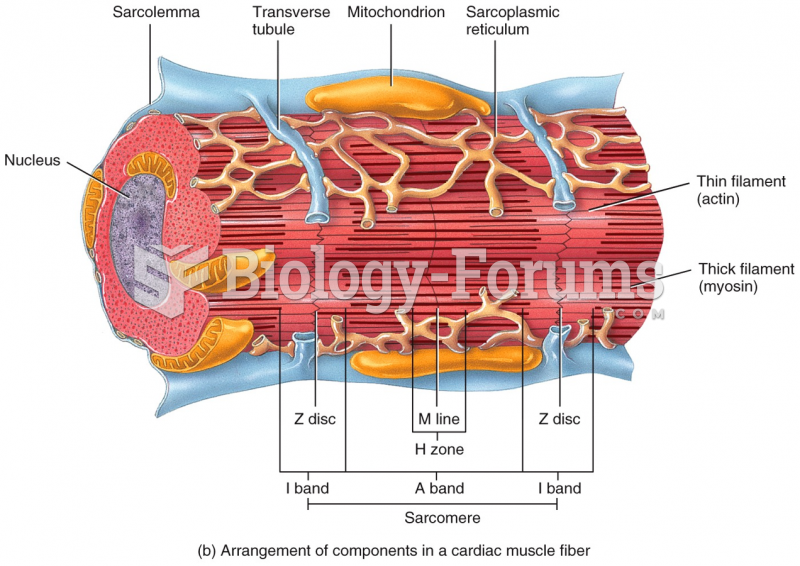|
|
|
The people with the highest levels of LDL are Mexican American males and non-Hispanic black females.
Urine turns bright yellow if larger than normal amounts of certain substances are consumed; one of these substances is asparagus.
Hip fractures are the most serious consequences of osteoporosis. The incidence of hip fractures increases with each decade among patients in their 60s to patients in their 90s for both women and men of all populations. Men and women older than 80 years of age show the highest incidence of hip fractures.
Since 1988, the CDC has reported a 99% reduction in bacterial meningitis caused by Haemophilus influenzae, due to the introduction of the vaccine against it.
Earwax has antimicrobial properties that reduce the viability of bacteria and fungus in the human ear.







